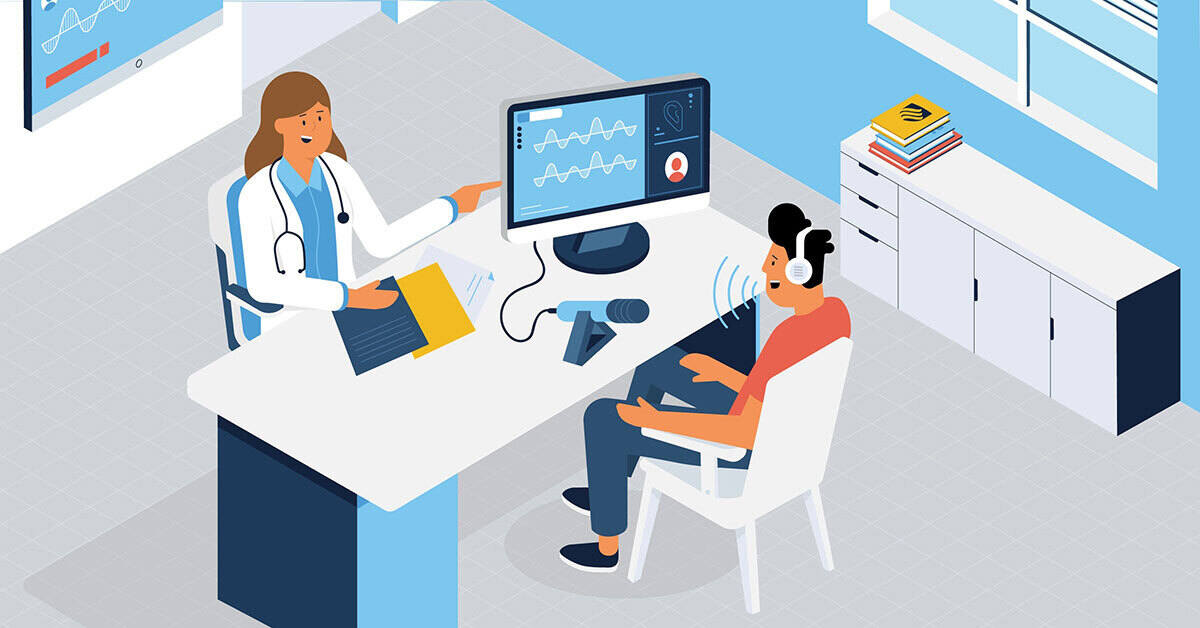The Role of a Speech Pathologist in Treating Speech Impairments
The Role of a Speech Pathologist in Treating Speech Impairments
Blog Article
Exactly How a Speech Pathologist Can Assist Improve Interaction Abilities
Efficient interaction is a foundation of professional and personal success, yet many individuals encounter obstacles that prevent their capacity to reveal themselves plainly. A speech pathologist is equipped to address these obstacles via targeted analysis and treatment techniques tailored to each person's needs. By employing evidence-based restorative techniques, they not just function to enhance speech and language conditions but additionally boost general communicative skills. Comprehending the multifaceted duty of a speech pathologist discloses exactly how their competence can transform lives, welcoming a better evaluation of the specific approaches and results connected with their technique.
Comprehending Communication Conditions
Understanding communication disorders is vital for recognizing exactly how they influence individuals' ability to reveal themselves and involve with others. Interaction conditions incorporate a vast variety of troubles that impact speech, language, and social interaction, typically impeding reliable interaction. These problems can arise from various variables, consisting of neurological conditions, developmental delays, physical problems, or emotional issues.
Speech disorders might manifest as problems in voice, fluency, or expression production, influencing how words are pronounced or spoken. Language conditions, on the various other hand, involve challenges in understanding or utilizing language, which can hamper both spoken and non-verbal communication. Social interaction problems are identified by difficulties in the pragmatic aspects of communication, such as taking kip down discussion or understanding social hints.
The repercussions of interaction problems are extensive, influencing not just the individual's ability to share thoughts and emotions but likewise their social connections, academic chances, and general top quality of life. Recognition of these problems can cultivate compassion and assistance, urging reliable methods for interaction and involvement. Recognizing the intricacies of interaction conditions is a vital action in the direction of promoting inclusivity and dealing with the requirements of those affected.
Role of a Speech Pathologist
Speech pathologists regularly play an essential duty in identifying and treating interaction problems, using a variety of evidence-based methods tailored per person's requirements. These professionals deal with people throughout the life-span, from kids with speech delays to grownups recuperating from strokes or terrible brain injuries. Their expertise incorporates a range of communication issues, consisting of articulation, language, voice, and fluency conditions.
In therapeutic setups, speech pathologists utilize organized treatments made to improve interaction skills. They might carry out strategies such as speech workouts, language games, and social interaction training to assist in enhancements in meaningful and responsive language capacities. Speech Pathologist. Additionally, they educate customers and their households about efficient communication methods and flexible methods to browse everyday communications
Beyond direct treatment, speech pathologists team up with other medical care professionals, caretakers, and instructors to make sure a comprehensive strategy to treatment. They support for customers by providing resources and assistance, allowing individuals to achieve their interaction goals and enhance their total top quality of life. As experts in the area, speech pathologists are important in promoting effective interaction, promoting self-reliance, and enhancing social involvement for those with communication difficulties.
Analysis and Diagnosis Refine
The assessment and medical diagnosis procedure performed by speech pathologists typically involves an extensive assessment to determine communication disorders accurately. This process begins with a comprehensive situation history, where the clinician gathers relevant information about the individual's medical, educational, and developmental history. Recognizing the context of the person's communication problems is vital for an accurate diagnosis.
Following the medical history, speech pathologists use informal assessments and standard examinations to assess various aspects of interaction, including speech sound manufacturing, language understanding, expressive language, and social interaction skills. These analyses are customized to the individual's age and specific problems, supplying important information for evaluation.
Observation is likewise an essential element of the assessment procedure, as it allows the medical professional to see direct how the specific communicates in natural setups. Furthermore, meetings with member of the family and educators can supply insight into the individual's communication challenges across various settings.
When the assessment is full, the speech pathologist synthesizes the searchings for to identify a medical diagnosis and suggest ideal interventions. This detailed evaluation procedure guarantees that individuals obtain targeted support tailored to their one-of-a-kind communication requirements, laying the structure for effective restorative strategies.
Restorative Techniques and Approaches
Numerous restorative strategies and strategies are employed by speech pathologists to address a range of interaction conditions effectively. One extensively utilized technique is expression treatment, which concentrates on correcting speech seems with rep and visual signs. This strategy is particularly useful for people with speech audio problems.
Another effective technique is language intervention, which improves both meaningful and responsive language abilities. This might entail interactive tasks that advertise vocabulary growth, syntax understanding, and conversational skills. Additionally, speech pathologists frequently utilize social skills training to improve pragmatic language go to this website capabilities, enabling individuals to browse social communications extra efficiently.
Fluency shaping and stuttering modification techniques are especially made to aid those experiencing fluency problems. These strategies assist customers create smoother speech patterns and take care of the emotional and physical components of stuttering.
Furthermore, augmentative and different communication (AAC) systems are utilized for individuals with severe interaction problems. These systems, which can include gestures, symbols, or digital tools, supply vital support for effective interaction.
Benefits of Speech Therapy

Furthermore, speech therapy can aid in establishing crucial listening and understanding skills, fostering far better communication in conversations. Individuals with cognitive-communication disorders can additionally profit, as therapy concentrates on reinforcing memory and analytic capabilities, vital for effective interaction.
Another critical facet is the emotional support given during therapy sessions. Speech pathologists develop a risk-free setting, motivating patients to conquer stress and anxiety and aggravation relevant to their interaction issues. This assistance can lead to enhanced self-esteem and total mental health.
Furthermore, early treatment through speech treatment can avoid more problems, making certain that individuals reach their complete communicative potential. On the whole, the benefits of speech therapy expand beyond mere speech improvement, positively influencing various measurements of life for those affected by interaction troubles.
Final Thought
In recap, speech pathologists play an important role in attending to interaction problems through assessment, diagnosis, and tailored healing interventions. By utilizing evidence-based strategies, these professionals improve people' speech and language capacities, cultivating boosted clarity, fluency, and social interaction skills. The advantages of very early intervention emphasize the relevance of looking for assistance from speech pathologists, as their expertise can substantially boost communicative possibility, ultimately leading to higher success in both specialist and individual rounds.

Speech Check This Out pathologists frequently play an important duty in diagnosing and treating communication conditions, using a range of evidence-based techniques tailored to each person's needs. As professionals in the area, speech pathologists are essential in promoting efficient interaction, advertising independence, and improving social engagement for those with communication challenges.

Report this page